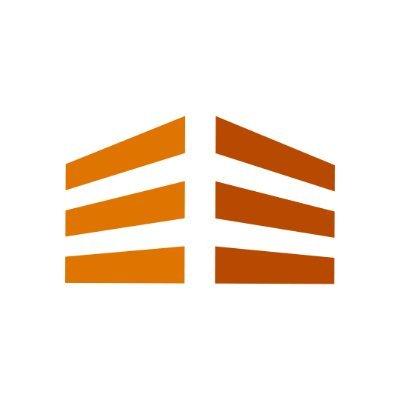Invest in commercial real estate projects
Invest in private assets
Investments
$25,000
Minimum investment amounts on CrowdStreet start at $25,000, with the exact threshold varying by individual project.
Investments
$10
Fundrise allows a minimum investment of $10 for taxable accounts and $1,000 for IRAs.
Moderate Risk
3/5
Investing via CrowdStreet entails typical real estate risks such as market fluctuations and property-specific issues, with no guarantee of returns and potential for capital loss.
Moderate Risk
3/5
Investing with Fundrise involves risks such as limited liquidity, potential modifications to the share repurchase program, market volatility affecting asset values, the possibility of total investment loss, and regulatory changes impacting operations.
Minimum Liquidity
1/5
CrowdStreet investments are generally illiquid, with capital committed for several years until a potential liquidity event, such as a property sale or refinancing, without a secondary market for early exit.
Minimum Liquidity
1/5
Fundrise offers liquidity through its share repurchase program, allowing investors to redeem shares quarterly with no penalties or costs.
Receive new reviews from Fintorial
High Return
17.9 %
CrowdStreet has a historical 17.9% Realized IRR and a typical 3.1-year hold period for investments, with returns varying based on equity shares, debt interest, or hybrid terms, and property sales.
Low Return
4.81 %
Investors on Fundrise can expect returns through dividends and appreciation, with an average income return of 4.81% over 7 years.
Long-term Investment
3-10 years
CrowdStreet investments typically have a hold period of 3.1 years on average, with some ranging from 3-5 years and others up to 10 years, reflecting a long-term investment horizon.
Long-term Investment
5+ years
Fundrise is designed for long-term investments, ideally for a period of 5 or more years, due to its focus on strategies aimed at long-term return potential.
Who can invest
United States
Individuals must be accredited U.S. residents with valid identification to invest on CrowdStreet, while entities need U.S. accreditation, taxation, and verification, subject to CrowdStreet's approval.
Who can invest
United States
To be eligible to invest with Fundrise, individuals must meet several criteria: they must be at least 18 years old, have permanent residency in the United States, possess a valid U.S. tax ID, and file taxes in the U.S. The platform is open to both accredited and non-accredited investors.
Moderate Volatility
3/5
Assets on CrowdStreet may experience volatility due to economic shifts, interest rate changes, and local market trends, affecting property values and investment returns.
Moderate Volatility
3/5
Assets on the Fundrise platform, such as private real estate and venture capital, typically show lower volatility compared to public stocks and bonds, due to less frequent valuation updates and reduced exposure to daily market swings.
Regulation and audits
SEC Regulated
CrowdStreet's offerings are regulated by the SEC and subject to regular audits for compliance, ensuring adherence to legal standards for securities and real estate investments. However, details on specific audits and regulations are not publicly disclosed.
Regulation and audits
SEC Regulated
Fundrise is regulated by the SEC and must comply with strict reporting, disclosure, and operational standards. It undergoes regular independent audits to verify financial accuracy, legal compliance, and the effectiveness of its internal controls, ensuring transparency and integrity in its operations for investor protection.
Insurance
Yes
CrowdStreet's properties are typically insured against physical damage, but this does not cover market risks or guarantee full property value protection. Investors should note that insurance mitigates, but doesn't eliminate, all investment risks.
Insurance
No
Investments on Fundrise, including real estate and alternative assets, are not insured by the FDIC or any other government agency, exposing investors to the risk of loss without insurance protection.
Payouts
Dividends
CrowdStreet investors may receive distributions, typically on a quarterly basis, based on the cash flow and profitability of their investments, but these are not guaranteed and depend on the specifics of each project.
Payouts
Dividends
Dividends are paid quarterly, based on income from portfolio projects, and can be either reinvested or cashed out. Appreciation comes from increases in the value of the investment, reflected in the net asset value (NAV) of shares. Returns start accruing after investment settlement, typically within 5 business days, and can be tracked on the Investor Dashboard.
Withdrawals
Investors on CrowdStreet typically receive their money back after a liquidity event like a property sale, based on the timeline of the specific project's business plan. Real estate investments are illiquid, so funds cannot be withdrawn on demand.
Withdrawals
To withdraw funds from Fundrise, investors must submit a liquidation request. Liquidations are reviewed quarterly for most funds, with a waiting period for the eFund. No penalty is charged for liquidating shares from the Flagship, Income, or Innovation Funds, but eREIT and eFund shares held for less than five years may incur a penalty. Liquidations are processed on a "First in, first out" basis.
Extra Fees
Yes
CrowdStreet investments may include sponsor-determined fees such as acquisition, asset management, and property management fees, along with performance-based carried interest.
Extra Fees
Yes
Fundrise charges a 0.15% annual advisory fee, a 0.85% management fee for real estate funds, and a 1.85% management fee for the Innovation Fund. Early liquidation of eREIT or eFund shares before 5 years incurs a 1% penalty.
Taxes
Tax Form
CrowdStreet issues Form K-1 or other relevant tax documents to investors for annual tax reporting, with the advice to consult a tax advisor for proper tax treatment of investments.
Taxes
Tax Form
Fundrise investors can expect Form 1099-DIV for eREITs or interval funds with distributions over $10, Schedule K-1 for eFund shares, and Form 1099-B for liquidated shares. Tax documents are issued at the end of January for 1099-DIVs and mid-March for K-1s, available on the investor dashboard. Multiple funds in a portfolio may result in receiving multiple tax forms.

